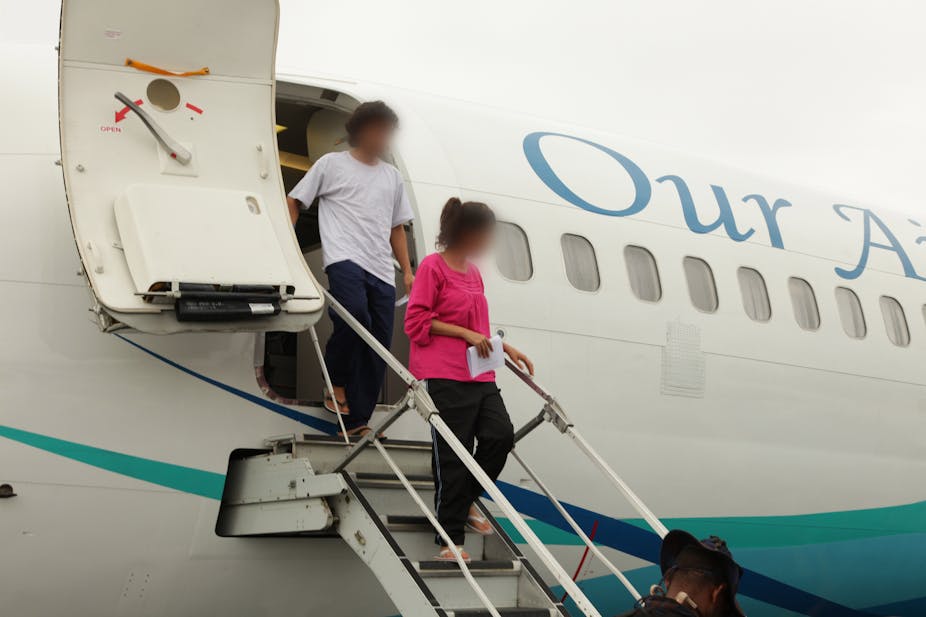The latest announcements about boat-people involved heading further down the wrong track: a track marked out by the Howard government for political reasons, and sold to the public using dishonest rhetoric which the Coalition continues to peddle. The result is that we are spending vast amounts of money on indefinite mandatory detention (at least $1 billion per year, but increasing as we spin them off to more remote, more expensive, places).
The cost of indefinite detention has to be clearly recognised. Detention on-shore costs around $150,000 per person per year. It costs about $350,000 per person per year to hold them off-shore. But the cost goes further. Since most boat people are ultimately recognised as refugees, and are accepted into the community, they come into the community profoundly damaged by their detention experience and (in some cases no doubt) resentful rather than grateful. They are less able to contribute fully to the Australian community because of the damage we inflict on them. This is a profound irony, given that boat people show great courage and initiative by getting here the way they do. In principle, they are just the sort of people we should want here.
As I argued in my earlier piece, the number of boat people who get here is small, by any measure. This year we might get 20,000 boat-people arriving, but it is likely to be fewer. Just recently Greece – poor, bankrupt Greece – volunteered to resettle 20,000 Syrian refugees. If Greece can manage 20,000 refugees in one hit, I dare say Australia can cope with 20,000 in a year. Incidentally, the population of Greece is about the same as Australia’s.
If things keep going as they are, we will lock asylum seekers up, ship them off to Nauru, or condemn them to a life in the shadows as a new underclass prevented from working for five years regardless of their true status as refugees. To put this in perspective, each of these responses involves Australia in breaches of various international human rights standards but more importantly it sits badly with our vision of ourselves as a generous, decent nation.
There is an alternative.
If I could re-design the system, it would look something like this.
First, boat arrivals would be detained initially for one month, for preliminary health and security checks, subject to extension if a court was persuaded that a particular individual should be detained longer.
Second, after initial detention, refugees would be released into the community, with the right to work and access Centrelink and Medicare benefits. Even if none of them got a job, this would still be cheaper than keeping them locked up.
Third, refugees would be released into the community on terms calculated to make sure they remained available for the balance of their visa processing.
Fourth, during the time their visa applications were being processed, refugees would be required to live in rural or regional areas of Australia. Any government benefits they received would thus work for the benefit of the rural and regional economy. There are plenty of towns around the country which would welcome an increase in their population.
It would take a bit of political selling, although I suspect that rural and regional Australia would be quick to see the benefits of this new approach.
But it should not be too hard to persuade the community that we can do better than we are doing now. The present system is supported by lies. Of course criminals should be treated as criminals. But when you see that boat people are not criminals it is more difficult to understand, much less accept, our treatment of them.
I believe most Australians are decent, generous people. Our record in both world wars stands as a tribute to our national character; our response to the Asian tsunami is another. It was tragic to see our national character brought down by the Howard government’s deceptive rhetoric about boat people (most of it calculated to win back voters who had drifted to One Nation).
It is equally tragic to see our national character being damaged by a Labor government which does not have the political spine to tell it like it is: to point out to voters that there is a better way; that we are better than this.

